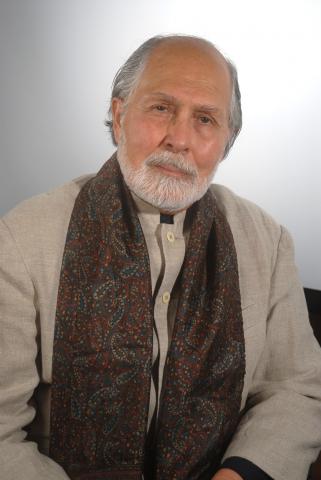
Seyyed Hossein Nasr is editor-in-chief for The Study Quran: A Translation and Commentary. He is a professor of Islamic Studies at George Washington University in Washington, D.C.
Posts By This Author
Opening a Sacred Text
From The Study Quran: A New Translation and Commentary, copyright 2015 by Seyyed Hossein Nasr, editor-in-chief. Published by HarperOne.
HARPERONE'S RECENTLY released The Study Quran (following The Study Bible and Commentary on the Torah) promises to be a needed resource in a time of religious turmoil: A new English translation, it is also the first to provide extensive, line-by-line commentary by scholars on meaning and context drawn from hundreds of years of Islamic tradition. Included are several essays on specific themes—including war and peace, science, and human rights.
The process used to shape this work was unique as well. The team of editors led by Seyyed Hossein Nasr, professor of Islamic studies at George Washington University in Washington, D.C., strove to include perspectives and interpretations from the broadest range of Muslim communities—Sunni, Shia, and others—without lifting one above the others. The team’s goal was to create an in-depth, accurate, and accessible translation for use by Muslims, scholars, students of religion, and anyone else wanting to rise above today’s media chatter and explore this sacred text.
—The Editors
From the introduction:
The Quran is the constant companion of Muslims in the journey of life. Its verses are the first sounds recited into the ear of the newborn child. It is recited during the marriage ceremony, and its verses are usually the last words that a Muslim hears upon the approach of death. In traditional Islamic society, the sound of the recitation of the Quran was ubiquitous, and it determined the space in which men and women lived their daily lives; this is still true to a large extent in many places even today. As for the Quran as a book, it is found in nearly every Muslim home and is carried or worn in various forms and sizes by men and women for protection as they go about their daily activities. ... The Quran is an ever present source of blessing or grace ( barakah) deeply experienced by Muslims as permeating all of life.
